Onsi Abou Seif
출생 : , Egypt
약력
An Egyptian interior designer, Born in 1943 in Kom Ombo, Upper Egypt, graduated from the Higher Institute of Cinema in 1967, he worked in his early days as an assistant to the interior designer in the movie (The Mummy) with Shady Abdel Salam, to participate in the following year in the film (Diaries of a Deputy in the Countryside) as a landscape engineer, and his work continues after that (Alexandria violin and violin) Arak Al-Balah, Ayyam Sadat, Kit Kat, Sea Messages)

Production Designer
Egyptian Short
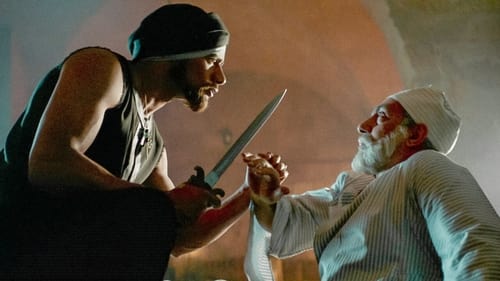
Production Design
A sequel to The Treasure (Part 1) - Reality & Fantasy (2017) The movie resumes with the stories of Hatsheput in the Pharaonic era, Ali al-Zaibaq during the Ottoman era and Beshr al-Katatini, head of State Security Investigations Service, who faces new challenges in work and love, whilst pointing his son, Hassan, towards a treasure through his recorded will.

Production Design
The events revolve around three eras: the Pharaonic era, the Mamluk era, and the first half of the 20th century. The events revolve around corruption and the power of some clerics over the ages to power and false and bad dealings with the people, and how to involve religion in politics in order to obtain positions. That there are clerics deliberately coloring and counterfeiting in this period of time to be the strongest and maintain their positions.

Production Design
When Yehia's scientific investigation of the paranormal yields nothing, he takes a forced vacation from his work and regular life. Wandering aimlessly, he settles in a seaside guest house that is inhabited by a group of quirky characters. As Yehia grows intimate with the owner and close to her charismatic young daughter, he believes he's stumbled across the magic he had sought for so long. It appears that something out of the ordinary seems to exist within them all, and perhaps also within himself.

Producer
Travelling between Germany, France and Morocco, Viola Shafik reconstructs and deconstructs the unknown life story of El Hedi Ben Salem through interviews with his companions and family members as well as archive material. With openness and slight naivety the interviewees explain how “Ali” became an oriental object of projection for the Fassbinder group, while El Hedi Ben Salem, the human being, was overlooked in order to establish the foreigner as “other.” A no-frills examination of a piece of German and Munich film history.

Production Design
A man witnesses the drastic changes in society as he goes back to the Alexandria of his youth.

Production Design
Love, passion, responsibility and loss follow a man over the course of half a century in this powerful drama from Egypt. In 1948, Hassan (Khaled El Nabawy) is working his first day on the job for a telegraph company when he has to deliver a telegram to Noura (Cyrine Abdelnour), a beautiful woman who is waiting on a ship docked in the harbor. The message is from Noura's fiancé, but when Hassan sees her, he acts on an impulse, and by the end of the day he's slept with Noura. In 1973, Hassan crosses paths with Noura again; her brother is in the hospital, and Hassan happens to meet Nadia, the beautiful woman's daughter who he may have fathered. And in 2001, elderly Hassan (now played by Omar Sharif) visits Cairo and meets Ali, Nadia's son, and both are taken aback at the similarities between them.
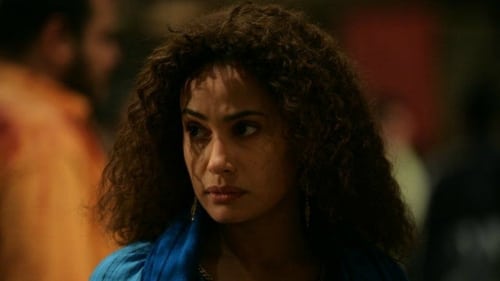
Set Decoration
Ibraham Al Abyad young child is exposed and his father killed before his eyes by a great band trading in drugs say takbeer the child and the image of his father's death does not leave his eyes and hoped that the proceeding by the time quickly in order to take revenge on all its members, led, of course, the gang leader and for this train Ibrahim Abyad exercises cruel and violent and finds that the best way to take revenge on the gang members is to approach them and join them to be able to kill them in his own way. in order to this shared their operations dangerous to gain their trust and before he began to implement the old dream is captured in one of the processes and able leader of the gang smuggled out and save his neck from a rope the gallows.

Production Design
A biopic of Egyptian singer Abdel-Halim Hafez.
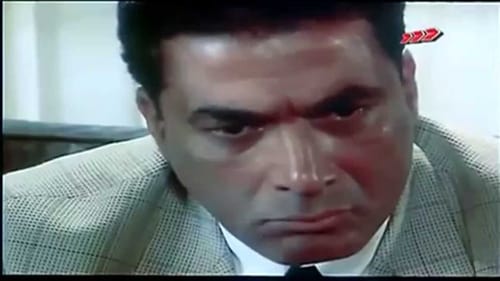
Production Design
A story about a police officer who was assigned to a secret mission as an undercover drug dealer, with the license to kill, deal in drugs, and do whatever is required for his identity to remain secret, with the ultimate purpose of reporting back to his supervisors. Gradually, after years of losing grip over his mission and purpose, realising that being a drug dealer has become his true identity, and that he hasn't heard back once from his supervisors, he then goes and tries to contact them back, only to realise that the designated postman had never delivered back any of the reports to his supervisors, let alone is aware that they exist.

Production Design
This film is an exploration of what happens to places in general, and people in particular, once the menfolk abandon an Egyptian village to investigate the greener-grass on the proverbial 'other side'. The womenfolk, those too old and those too young are left behind... and as the years pass, only letters return, telling tales of loneliness and hard-times. A young man, Ahmed, grows-up under these surroundings and has to deal with being the de-facto man-in-charge; when several of the migrant workers return one day, everyone has to come to terms with things being forever changed.
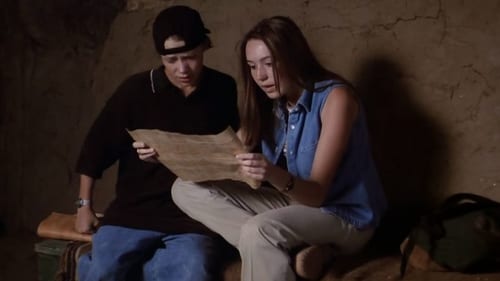
Production Design
While excavating near the Pyramids, Dr. Leonhardt finds a small box with a map to the treasures of the Pharaoh Ramessess II. On his way to deliver this to the local authorities, he is kidnapped by his nemesis Dr. Bent. Before Bent can retrieve the papyrus map, Karen, who is Leonhardt's student assistant, and John, Leonhardt's son take the map to look for Leonhardt. They soon find that Bent is in hot pursuit and they figure that the only way to save Leonhardt is to be the first to the treasure so that they could ransom the Doctor from Bent. But Bent has other plans for all three of them.

Production Design
The residents of the Mokattam area are in a state of joy. Shata has been married to the dancer (Ahlam), but (Ahlam) has a lover's heart (Awad). In order to resolve the situation, Awad must arrange for the expenses of the marriage within a few days and the introduction of Ahlam's speech. Awad tries to help Awad and thinks that she is overdoing herself. Awad is committing a process closer to armed robbery and stealing his brother's clothes to sell. Ahlam is staying in an apartment of a foreigner to help her boyfriend buy the net.

Art Direction
Nubi spent a period of his life in a mental hospital after his father deposited him unjustly. He is not crazy, but his father donated all he had to the Communist Party, which was adhering to its principles. The government then placed the family property under guard. Nubian lives with his mother Rose and discover amazing facts, including that his father, who bears his name is not his real father, but his mother gave birth to her brown friend, and then discovered that his brother missed the family and no one knows his place but joined the extremist group.
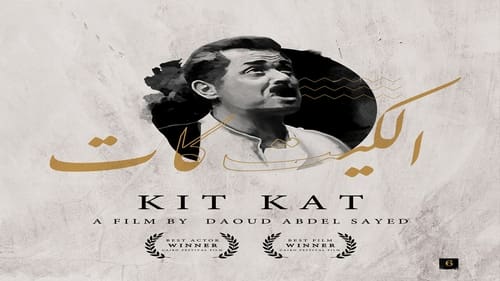
Production Design
Sheikh Hosny is a blind man who lives with his old mother and his frustrated son in the Kit Kat neighborhood. His son Youssef dreams of going to Europe to find work, and has a relationship with a divorced woman named Fatima. Sheikh Hosny refuses to admit his handicap and dreams of riding a motorcycle like every sighted person, he also spends his nights smoking hash with the locals in order to forget his miseries after the loss of his wife and selling his father's house.

Production Design
An archaelogist falls under the spell of a statue with a curse on it.
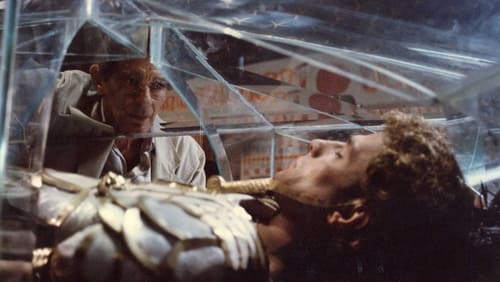
Property Master
Set in 1987 against the backdrop of a hunger strike by the Egyptian film industry, Chahine himself steps in to play Yehia, the famed Egyptian director whose life is chronicled in "Alexandria, Why?" and "An Egyptian Story". Obsessed with Amr, the handsome actor he discovered and cast as his alter-ego in parts one and two of The Alexandria Trilogy, Yehia pressures Amr to star in various film projects that change even as Yehia's perception of the young actor begins to change. He first casts Amr as Hamlet, which the actor deems too demanding for his talents, then as the lead in a musical biopic of demigod Alexander the Great, who founded the city of Alexandria in 332 B.C.

Set Decoration
Set in 1987 against the backdrop of a hunger strike by the Egyptian film industry, Chahine himself steps in to play Yehia, the famed Egyptian director whose life is chronicled in "Alexandria, Why?" and "An Egyptian Story". Obsessed with Amr, the handsome actor he discovered and cast as his alter-ego in parts one and two of The Alexandria Trilogy, Yehia pressures Amr to star in various film projects that change even as Yehia's perception of the young actor begins to change. He first casts Amr as Hamlet, which the actor deems too demanding for his talents, then as the lead in a musical biopic of demigod Alexander the Great, who founded the city of Alexandria in 332 B.C.

Production Design
Set in the summer of 1961 during Nasser's land reforms, ‘’Summer Thefts’’ is the story of a childhood friendship between Yasser, the son of a bourgeois landowner, and Leil, the son of an Egyptian peasant.

Production Design
Directed by Khairy Beshara.
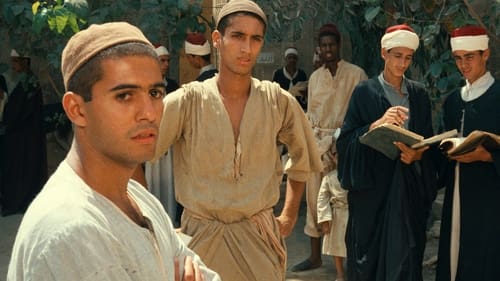
Production Design
This big-budget historical epic from acclaimed Egyptian director Youssef Chahine features a crazed turn by Patrice Chereau as Napoleon Bonaparte. The film, an Egyptian-French co-production, deals with Napoleon's occupation of Alexandria and its effect on a typical Egyptian family. Michel Piccoli leads the cast as a general in Napoleon's army who tentatively befriends a local poet.













